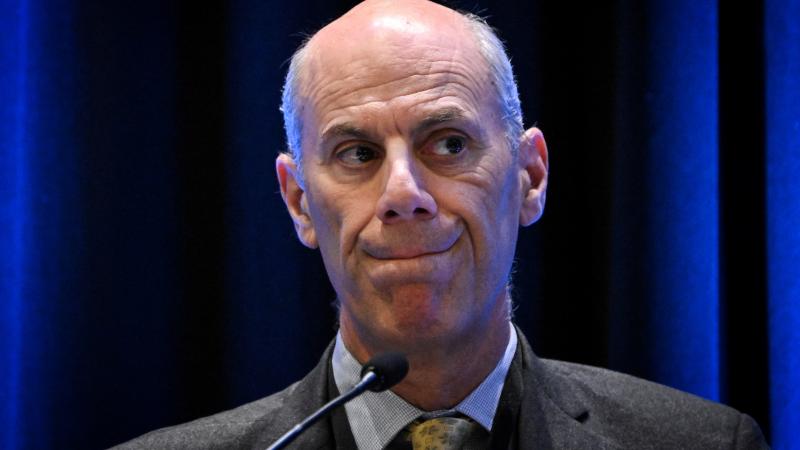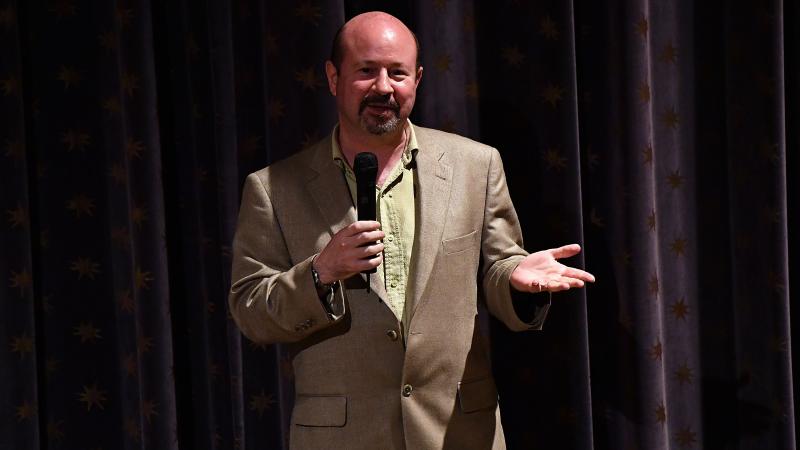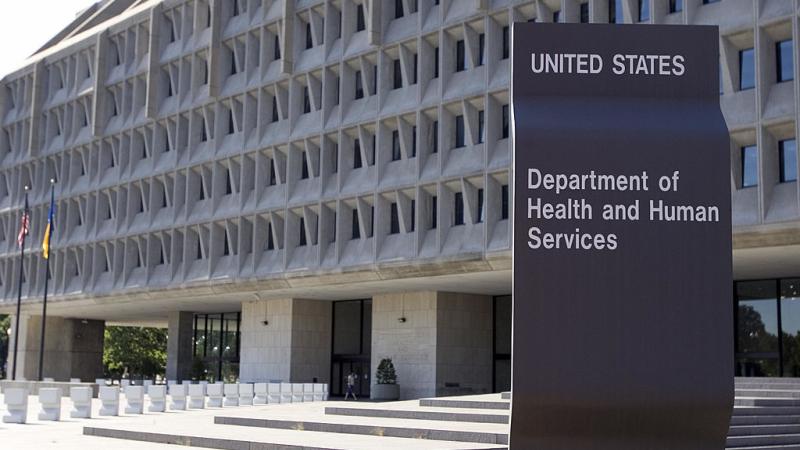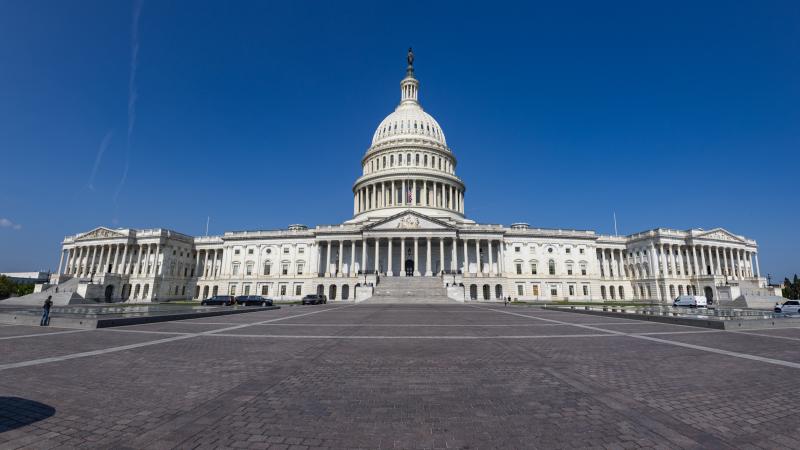Chief Justice Roberts adopts some gender-ideology language in upholding youth gender-transition ban
From "transgender boy" to preferred pronouns, majority opinion "riddled with radical ideological language," America First Policy Institute official laments. Justice Kagan not sure law would fall even under preferred legal standard.
The Supreme Court gave transgender activists and the gender ideology movement a possible lifeline Wednesday in upholding Tennessee's law prohibiting puberty blockers, cross-sex hormones and surgery as treatment options for gender-confused youth, presumably protecting similar laws in half the states: It adopted much of their language.
The 6-3 majority opinion by Chief Justice John Roberts in Skrmetti v. U.S. repeatedly uses the phrases "transgender boy" and "transgender girl" to describe females who identify as boys and males who identify as girls, respectively, and explicitly specifies what he's doing in a footnote. It also refers to each by opposite-sex pronouns.
Even as it repeatedly emphasizes sex is rooted in biology and chromosomes, the opinion refers at least a dozen times to "sex transition treatments," implying that sex itself and not just sex characteristics can be changed.
Furthering the confusion, Roberts' elaboration on the "but-for causation standard" – used to determine if a person's treatment under the law would change as the opposite sex – led some readers to think Roberts was saying females can become males.
The concurrences by Justices Clarence Thomas, Amy Coney Barrett and Samuel Alito, the latter of whom did not fully join the majority opinion, do not appear to mention Roberts' language choices, leaving open whether they assent or just didn't bother to disagree.
Alito alone mentions gender pronouns in a section explaining why SB 1's limitation to medical procedures for minors, and exclusion of behaviors for "expressing their gender identity," likely means the law is not a cover for "invidious discrimination" based on gender identity.
Careful readers of the opinion quickly flagged Roberts' language choices and tamped down on the enthusiasm of Tennessee's backers such as detransitioner and activist Chloe Cole.
One critic noted the chief justice forecast his approach in oral argument by addressing the plaintiffs' ACLU lawyer Chase Strangio, a female who identifies as a man, as "mister." The hearing transcript followed Roberts' lead, always calling the lawyer "Mr. Strangio."
'Riddled with radical ideological language'
Mainstream media did not appear to notice the language wrinkle, with The New York Times treating "transgender boy" as a neutral term for a gender-confused female and not an ideologically loaded choice. SCOTUSblog confusingly distinguished between female and male using "transgender boy" and "teenage boy who is not transgender."
"Thrilled with the Court's decision in Skrmetti; very disheartened to see the decision riddled with radical ideological language," America First Policy Institute litigation chief of staff Leigh Ann O'Neill wrote on X. "That shows how deep the Critical Gender Theory rot is," another user said.
"If conservative public interest law firms were as interested in stopping gender ideology as they were about rolling back protections for gays … the briefs would do a better job of combating the coopting of the language" affirmed by Roberts, an anonymous critic wrote.
While Roberts' phrasing "has no medical or legal basis … what a great day it is" otherwise, an X user told youth gender clinic whistleblower Jamie Reed, director of the LGB Courage Coalition, who frequently testifies against what supporters call gender affirming care.
Reed's spouse Tiger announced her own detransition last year as a result of worsening physical and emotional health from testosterone injections and breast removal as an adult. "This is the WIN that we were seeking in that it allows our work to continue to fight in more states for these reasonable restrictions," Jamie Reed said.
Court's three liberals not on the same page
Preceded the day before by transgender plaintiffs dismissing their lawsuit against Idaho's similar law due to moving out of state, the SCOTUS ruling did give much to celebrate for opponents of gender ideology and possible concern for advocates of it.
Justice Sonia Sotomayor's dissent accused the majority of subjecting "lifesaving medical treatment" for transgender children and their parents to "political whims" and whitewashing what she portrayed as Tennessee's unambiguously sex-based law.
Justice Ketanji Brown Jackson joined her dissent in full while Justice Elena Kagan opted out of Sotomayor's last section, agreeing the law warrants "heightened scrutiny" — the core dispute in the case — but not whether SB 1 would fail under that test, appearing to show the high court's three liberals were not in unison of the matter.
"The record evidence here is extensive, complex, and disputed," and by applying the lowest standard of judicial review, known as "rational basis," the 6th U.S. Circuit Court of Appeals "never addressed the relevant issues," Kagan said. Both the plaintiffs and government urged the high court to remand the proper review standard to the lower courts, she noted.
Sex-based treatment crucial to medicine
Contra the courts' liberals, the Roberts majority treated the legal question – whether SB 1 is a sex-based classification and hence deserving of heightened scrutiny – as relatively straightforward and simple to answer in the negative.
"At times, the plaintiffs suggest that SB1 classifies on the basis of sex because its prohibitions reference sex," or that "application of the law turns on sex," Roberts wrote. That's not only unsupported by SCOTUS precedent but "especially inappropriate in the medical context," where the Food and Drug Administration "frequently" approves drugs for only one sex.
The plaintiffs and dissent hide the "underlying medical concern the treatment is intended to address" when they claim the law restricts "medical treatment" by sex, the majority said. Gender-confused females take puberty blockers for that condition, but males who take the same drug for "precocious puberty" receive a "different medical treatment."
Roberts opens with a review of the history of so-called gender-affirming care and the predecessor to the World Professional Association for Transgender Health (WPATH), whose first clinical guidelines in 1979 limited treatment to adults, countenanced "rare" exceptions for minors 20 years later and even today acknowledge known fertility and unknown other risks.
There is no evidence of "sex-based stereotyping" in the Tennessee statutory findings, which cite the state's "compelling interest in protecting minors from physical and emotional harm" resulting from medical treatments that are "experimental, can lead to later regret, and are associated with harmful – and sometimes irreversible – risks," Roberts said.
Finland, Sweden, Norway and England have emphasized the low quality of evidence for the treatment in minors just since 2020, Roberts said. An attorney for the Institute for Justice, which recently filed in a First Amendment "conversion therapy" case to be heard by SCOTUS, noted the high court also invoked European governments to overturn sodomy laws in 2003.
Sex to gender confusion is like women to pregnancy
The court declined to make transgender individuals "a suspect or quasi-suspect class" because the law classifies only based on age and "medical use," comparing their relation to gender confusion to women's relation to pregnancy – a condition not synonymous with womanhood.
Only transgender individuals seek the treatment for gender confusion – otherwise known as "gender dysphoria" – but both transgender and non-transgender people can get it for other conditions, Roberts wrote.
The opinion, however, failed to settle the years-long debate over whether the high court's transgender employment discrimination precedent Bostock applies beyond Title VII of the Civil Rights Act, in the "but-for causation standard" section that confused some readers. Gender clinic whistleblower Reed said her coalition members were debating this omission.
While plaintiffs claimed "SB1 discriminates on the basis of sex because it intentionally penalizes members of one sex for traits and actions that it tolerates in another," a gender-confused female denied testosterone would still not be able to get it as a gender-confused male "because he would lack a qualifying diagnosis" such as precocious puberty, Roberts said.
"Unlike the homosexual male employee whose sexuality automatically switches to straight when his sex is changed from male to female" in Bostock, "there is no reason why a female minor’s diagnosis of hirsutism" in Sotomayor's hypothetical "automatically changes to gender dysphoria when her sex is changed from female to male," Roberts said.
Trust experts who claim castrating mentally sound males is 'medically necessary'?
The concurrences by Barrett and Thomas, who also joined Barrett's, drew plaudits from some legal observers.
Because transgender individuals don't share "obvious, immutable, or distinguishing characteristics" of a discrete group – an omission they share with "the mentally disabled, the elderly, and the poor" – they can't qualify as a suspect class, Barrett wrote.
The plaintiffs experienced gender dysphoria at varying ages. They admit some peers detransition later in life and medical advocates such as WPATH and the American Psychological Association define "transgender" as a "huge variety" of "diverse gender experiences," she said. They also lack a long history of "de jure discrimination" unlike blacks, women and immigrants.
The courts would have to "oversee all manner of policy choices normally committed to legislative discretion" if transgender people are a suspect class, wading into ongoing debates among experts, in Europe and America, about the risks, benefits and minimum age for treatments but also gender identity in restroom access and athletic eligibility, Barrett said.
"In politically contentious debates over matters shrouded in scientific uncertainty, courts should not assume that self-described experts are correct," Thomas wrote. Sotomayor's "supposed experts" have testified that castrating males who "identify as eunuchs" may be "medically necessary" even without mental health problems or "high risk of self-castration."
Alito's concurrence departs from the majority by claiming there's a "strong argument" that SB 1 classifies on the basis of transgender status, but saying it still wouldn't warrant heightened scrutiny. He also rejects the applicability of Bostock "when determining whether a law classifies based on sex for Equal Protection Clause purposes."
The Facts Inside Our Reporter's Notebook
Links
- upholding Tennessee's law prohibiting
- similar laws in half the states
- 6-3 majority opinion
- led some readers to think
- females can become males
- tamped down on the enthusiasm
- detransitioner and activist Chloe Cole
- chief justice forecast his approach in oral argument
- hearing transcript
- The New York Times
- SCOTUSblog
- Leigh Ann O'Neill wrote on X
- another user said.
- anonymous critic wrote.
- another said
- X user told youth gender clinic whistleblower
- frequently testifies against
- Reed's spouse Tiger announced her own detransition
- Jamie Reed said
- transgender plaintiffs dismissing their lawsuit
- First Amendment "conversion therapy" case
- overturn sodomy laws in 2003.
- but-for causation standard
- Reed said her coalition members were debating















